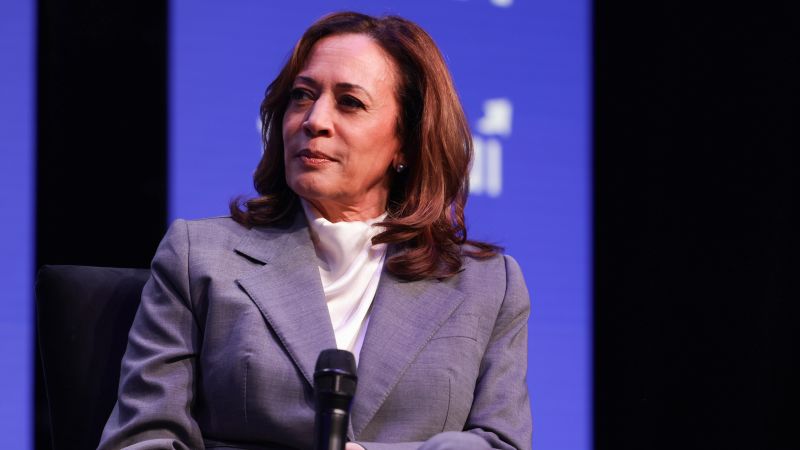The question surrounding California Vice President Kamala Harris’s potential bid for the governorship is gathering momentum amidst critical political dynamics. As the 2026 gubernatorial elections loom large, various California Democrats are voicing their thoughts regarding her possible candidacy. This dialogue mirrors an intricate tapestry of concerns from both supporters and skeptics, with implications for the broader political landscape.
Recently, Rep. Dave Min, a California Democrat, found himself cornered by reporters at the U.S. Capitol. When quizzed about his sentiments regarding Harris running for governor, he abruptly decided to end the interview, stating he had “no comment” and hurried away. This abrupt dismissal highlights the trepidation among lawmakers about commenting on a potentially polarizing figure. On the other hand, Rep. George Whitesides, another Democratic freshman representing California, took a more measured approach. Despite acknowledging Harris’s impact, he emphasized his focus on his own electoral challenges, suggesting that any decision by Harris must be left to her discretion.
As discussions continue, critics of Harris caution that her entry into the race may not yield the expected enthusiasm. Several doubts have surfaced about her ability to galvanize voter support, especially in pivotal swing districts where Democrats need to focus on winning back a majority in the House of Representatives. With California’s reputation as a deep-blue state, some insiders worry that a divisive primary campaign could inadvertently energize Republican opposition and exacerbate the challenges for vulnerable Democratic incumbents.
As whispers grow among party leaders, it becomes evident that Harris’s past as the Vice President has woven a complex narrative. Former President Joe Biden’s decision to run for reelection before endorsing her reigns heavy on party discussions. Donors and party leaders are demanding answers and clarifications on whether Harris laid the groundwork effectively to avert Trump’s political resurgence.
Supporters of Harris argue vigorously for her gubernatorial candidacy, asserting her extensive background in California politics — from her roles as a district attorney to attorney general and U.S. senator. Rep. Ro Khanna emphasizes that her experience equips her uniquely to confront issues like affordable housing and public safety. Other advocates, including Rep. Mike Levin, echo this sentiment by highlighting her familiarity with the electorate, arguing that she would emerge as a formidable candidate.
However, Harris’s journey toward a potential run seems to be overshadowed by more significant issues concerning her public image. Critics of Harris point out that there’s an absence of enthusiasm for her candidacy, and they fear that if she fails to generate excitement, her presence could detrimentally impact other elections, particularly where Democrats narrowly hold seats. Some legislators, preferring to remain unnamed, express that while a Harris candidacy might result in a victory, it could simultaneously demoralize the party’s base.
The complex fabric of opinions further complicates Harris’s perspective on her potential run. Conversations with confidants reveal her methodical deliberation over the decision, engaging in dialogue with former governors about the feasible impacts of a gubernatorial role. Notably, Harris has reportedly nixed a long-desired August vacation, indicative of the seriousness with which she’s treating this reflective period.
Adding another layer to the conversation, party dynamics are changing around the prospect of redistricting. With California facing the possibility of mid-decadal redistricting, local Democrats worry about the implications of altered district lines on their electoral prospects. As state party officials threaten to redraw maps to maximize their advantage, concerns are mounting that Republicans could exploit any weaknesses in Democratic unity.
Furthermore, recent electoral trends in California suggest that enthusiasm for Democratic candidates, including Harris, has resurged in response to pressures from former President Trump’s administration. Rep. Mark Takano highlights a shifting political tide, noting how various communities are rallying as a counter to right-wing trends. However, the competitive nature of upcoming elections forces a consideration of how any individual candidate, including Harris, would fit into a broader strategy.
In summary, the future of Kamala Harris in California politics raises numerous questions about public sentiment, party dynamics, and electoral strategies. Stakeholders on both sides of the debate continue to voice a mixture of concerns and hopes regarding her potential run, revealing the intricate nature of political maneuvering in a vital state for the Democratic Party. As we edge closer to the 2026 elections, Harris’s eventual decision will not only shape her career trajectory but also create a ripple effect across the west coast’s political landscape.











